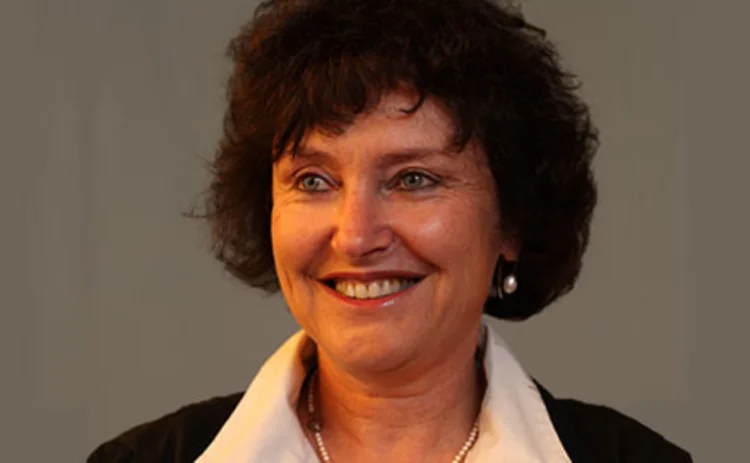
Governor of the year: Karnit Flug
Bank of Israel’s first female governor delivered some hard-fought reforms during her time in office

Israel has always occupied a complex geopolitical and economic niche. There remains the constant possibility of conflict with Palestine, and potentially other nearby states, while the small, open economy is exposed to the vicissitudes of international markets.
The Bank of Israel occupies a similarly delicate position, charged with maintaining price stability but also, less usually for a central bank, with offering candid economic advice to the government of the day. The various coalitions led by prime minister Benjamin Netanyahu have often – like many governments – been tempted by short-term priorities, and the Bank of Israel has frequently found itself at odds with lawmakers. Meanwhile, the central bank maintains ties with its counterpart in Palestine, to which it supplies shekel banknotes, even as political relations have been frosty and blood has been spilled.
Such treacherous waters call for a particularly skilful kind of central banker, and Karnit Flug demonstrated her mettle in 2018 and during her five years leading the Israeli central bank. Over the course of her governorship, which capped a 30-year career at the Bank of Israel, she delivered major reforms to the banking sector, laid the foundations of a financial stability committee, and held the government to account on its economic policies – all the while keeping inflation low and stable.
Several of the measures Flug fought for as governor bore fruit in the past year, including the passage of legislation establishing the financial stability committee and the bulk of the technical setup of a new credit register. Inflation also moved back into the 1–3% target range during 2018 while GDP growth measured a robust 3.2%. The International Monetary Fund described the central bank’s reserve position as “comfortable” in its May 2018 assessment – and reserves ended the year at $115 billion, little changed from earlier months. Israel’s external position was “broadly in line with fundamentals”, fund staff said.
Central banking career
In many ways, Flug had a classic central banking career. She graduated in 1980 from the Hebrew University of Jerusalem with a master’s degree in economics, and followed it up with a PhD at Columbia University, which she completed in 1985.
Before the ink had dried on her thesis, in 1984, she started work at the IMF as an economist. In 1988, she moved back to Israel, and joined the research department at the central bank, where she remained for much of her career. There she published papers on topics including macroeconomics, labour markets and social policy – issues that would later colour her governorship. After a spell at the Inter-American Development Bank, in 1997, she became deputy director of the Bank of Israel’s research department, rising to director in 2001, and then deputy governor in 2011.

But Flug’s rise through the ranks was nearly cut short in 2013. Despite being highly experienced, well qualified and appearing to have the backing of outgoing governor Stanley Fischer, the government snubbed her twice for the governor’s role. The second time, she tendered her resignation. However, amid a worsening media storm, the government’s chosen appointee, banker Leo Leiderman, withdrew his application. The government finally offered the role to Flug, and she accepted, becoming the first female governor in the institution’s history.
That early friction with the government was to re-emerge several times during Flug’s term, including during 2018, but she did not let it stop her pushing for change. An early priority was to establish a financial stability committee, to bring together Israel’s somewhat fragmentary financial stability apparatus.
Israel has several financial regulators, including the Bank of Israel’s banking supervision department, as well as the Capital Market, Insurance and Saving Authority and the Israel Securities Authority. Although the authorities always sought to co-ordinate their actions, the arrangement was informal. Flug pushed for the relationship to be formalised throughout her term, and just a few weeks after she left office, the government passed legislation establishing a financial stability committee, to be chaired by the Bank of Israel governor.
Competition controversy
A more controversial process was the reform of Israel’s banking sector. Flug and the minister of finance jointly established a committee to investigate possible reforms, under the chairmanship of lawyer Dror Strum. When the committee reported back, one of its key recommendations was to separate three Israeli banks from the card companies they owned, to make it easier for new firms to enter the market.
Separating the card companies from Israel’s two largest banks was relatively straightforward, but both the Bank of Israel and IMF cautioned against doing so at a third, mid-sized bank. This bank was seen as a viable challenger to the other two, and separating its card company could have harmed its ability to compete. The central bank made its concerns public in December 2015, and the IMF echoed them in a report in June 2016. The fund also hinted at the growing politicisation of the process.
“The mission was conducted against the backdrop of considerable political pressure on the [banking supervision department] in the discharge of its prudential responsibilities,” IMF staff wrote at the time.
Looking back at the end of her term, Flug said the competition reforms proved the most difficult point of contact between her and the government
Looking back at the end of her term, Flug said the competition reforms proved the most difficult point of contact between her and the government. “As to friction between the central bank and the political system, during my term, it was in fact most intense around issues related to the core activity of the Bank of Israel in supporting financial stability,” she said. “The quest for enhancing competition in the provision of financial services, which we all share, led to heated debate as to the scope, the speed and the specifics of the financial sector reform.”
Ultimately, the Bank of Israel won that argument – more or less. The government agreed to separate the card companies from the two big banks and come back to the issue of the third bank in a few years’ time. A study by the Bank of Israel, published in May 2018, said the reforms were showing results – competition in retail credit had “increased greatly”, the authors wrote.
There were lower-profile – but no less important – successes, as well. Under Flug’s leadership, the central bank began developing a credit register, with the aim of promoting both financial stability and credit provision. The project drew close to completion in 2018, and is due to go live later this year. Flug also oversaw the smooth introduction of a new banknote series, for which the Bank of Israel won the Central Banking currency manager award for 2019.
Policy results
Flug achieved important successes in the macroeconomic sphere, as well. Inflation was low during her term, too low at times, as it dipped into deflation, but she and the central bank’s economists correctly predicted the deflation was benign and temporary.
A moment of turbulence came in June 2015, as Flug delivered the central bank’s first-ever monetary policy press conference. The event came amid intense speculation over whether the central bank would unveil quantitative easing or signal the likelihood of additional rate cuts – potentially below zero – to tackle inflation that had weakened steadily since 2014. Flug dismissed the speculation, sending investors into a brief tantrum.
She was more careful at subsequent meetings. But the central bank’s analysis was sound: the deflation was driven by factors largely beyond the reach of monetary policy, including the falling oil price and the rise of more competitive online pricing – the ‘Amazon effect’. Inflation moved back into the 1–3% target band in 2018, growth remained robust, recovering to a peak of 4.7% in late 2016, and unemployment has since hit a record low, at 3.9% in 2018, IMF data shows.

Flug’s background in social policy and labour markets also proved useful for fulfilling the unusual advisory role that is specified as one of the key functions of the governor in the Bank of Israel Act: “The governor shall serve as adviser to the government on economic matters, including with regard to reducing social gaps and reducing inequality in income distribution.”
In speeches throughout her term, Flug pressed the government to do more to tackle key issues, including inequality and low productivity. She particularly urged the government to increase its infrastructure spending, to improve Israel’s creaking transport infrastructure, and to back the spending increase with higher taxes. It was a difficult position to hold during a period in which tax revenues kept beating forecasts, with the government looking to share out the spoils, not tighten its belt or raise taxes. But in 2018, the government came close to breaching its deficit target, making her previous warnings sound prescient.
Political pressures
Although her clashes with a series of governments under Netanyahu left Flug a somewhat divisive figure in Israel, internationally, she built important links with her counterparts via meetings in Basel and elsewhere. She is also understood to have maintained discreet ties to the Palestine Monetary Authority – a cordial working relationship that is in sharp contrast to the Israeli government’s.
“[The relationship] is very professional,” Jihad Al-Wazir, former governor of the PMA, told Central Banking in 2015. “As central bankers, we avoid the politics.”
At home, the politics were impossible to avoid, however. In March 2018, the central bank published its annual report. Flug’s introductory letter was cautiously phrased, offering the government some of the credit for a recent slowdown in house price growth, and urging it to continue to “create the conditions that allow a high level of supply”. But a chapter of the report on housing highlighted some possible problems with the government’s flagship affordable homes programme, noting that while the policy was cutting prices for first-time buyers, it was also increasing the waiting time for a new home.

The Jerusalem Post called the report “blistering” – arguably something of an overstatement, given the document’s anodyne central-banker language, but the report clearly touched a nerve for finance minister Moshe Kahlon. A finance ministry spokesperson accused the Bank of Israel of acting only in its own interests, and added that Flug’s term would not be renewed.
It is hard to tell how much weight the threat carried. For one thing, the decision on a governor’s appointment falls to the prime minister, not the finance minister, and for another, it was unclear at that stage that Flug wanted a second term. She had plenty of reason to be satisfied with her work during her term and may have independently decided not to seek another one for personal reasons. On top of that, the prospect of five more years of difficult relations with the government may not have been particularly appealing. She may also have felt another candidate, one who would hopefully endure a less painful appointment process, might have better chance of influencing the government’s thinking. Ultimately, Flug chose not to seek a second term.
She can look back with satisfaction at her time in office, which deserves to be seen as a model of steady, firm central bank leadership. She led the central bank through challenging times, getting key macroeconomic decisions right and delivering essential reforms. All the while, she defended the central bank’s independence from politicians who often veered towards the populist, without shrinking from her duty to speak difficult truths to lawmakers.
The Central Banking Awards were written by Christopher Jeffery, Daniel Hinge, Dan Hardie, Rachael King, Victor Mendez-Barreira, Joel Clark, William Towning and Tristan Carlyle
Only users who have a paid subscription or are part of a corporate subscription are able to print or copy content.
To access these options, along with all other subscription benefits, please contact info@centralbanking.com or view our subscription options here: www.centralbanking.com/subscriptions
You are currently unable to print this content. Please contact info@centralbanking.com to find out more.
You are currently unable to copy this content. Please contact info@centralbanking.com to find out more.
Copyright Infopro Digital Limited. All rights reserved.
As outlined in our terms and conditions, https://www.infopro-digital.com/terms-and-conditions/subscriptions/ (point 2.4), printing is limited to a single copy.
If you would like to purchase additional rights please email info@centralbanking.com
Copyright Infopro Digital Limited. All rights reserved.
You may share this content using our article tools. As outlined in our terms and conditions, https://www.infopro-digital.com/terms-and-conditions/subscriptions/ (clause 2.4), an Authorised User may only make one copy of the materials for their own personal use. You must also comply with the restrictions in clause 2.5.
If you would like to purchase additional rights please email info@centralbanking.com




